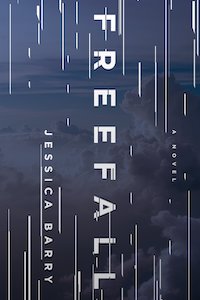Sponsored by Saga Press, an imprint of Simon & Schuster.
Charlaine Harris is back! The #1 New York Times bestselling author of the Sookie Stackhouse series (the books that inspired HBO’s True Blood) has an all-new series that fans new and old will adore. Perfect for readers of alternate history and weird westerns, A LONGER FALL is set in a world where Franklin D. Roosevelt was assassinated, and follows gunslinger Lizbeth Rose in the fractured countries and territories that were once the United States of America. Tying in touches of magic and mystery, this is one for all readers of speculative fiction and thriller will enjoy.
Welcome to Read This Book, a weekly newsletter where I recommend one book that I think you absolutely must read. The books will vary across genre and age category to include new releases, backlist titles, and classics. If you’re ready to explode your TBR, buckle up!
 This week’s pick is a new release that just squeaked in at the end of 2019, but definitely should not be forgotten as you head into 2020–Such a Fun Age by Kiley Reid!
This week’s pick is a new release that just squeaked in at the end of 2019, but definitely should not be forgotten as you head into 2020–Such a Fun Age by Kiley Reid!
Content warnings: racism
Emira Tucker is nearly 26 and adrift. A Black college graduate, she’s the only one in her family who hasn’t found her passion, and she cobbles together a living between a part-time typing gig and babysitting three-year-old Briar for the wealthy, white Chamberlain family. One night, she’s stopped in a grocery store and accused of kidnapping. Although the incident is resolved before the police arrive, the exchange is caught on camera by a bystander, who shares the video with Emira before agreeing to delete it.
“I don’t need you to be mad that it happened. I need you to be mad that it just like … happens.”
Such a Fun Age is a stellar novel (and a debut, no less!) about class, racism, and privilege that is both funny and upbeat, but also sharply critical of white people who go out of their way to prove just how woke they are. It’s told from the perspectives of both Emira and Briar’s mother, Alix, and the contrast is stark but endlessly fascinating. Alix is a former influencer turned motivational speaker who is floundering in her career. After the incident in the grocery store, she tackles getting to know Emira with the same relentless enthusiasm that she goes after a shot at partnering with the Hillary Clinton campaign, not totally ignorant of her manipulative tactics but certain of her virtue. Emira is not fooled by Alix’s newfound interest in her, but she doesn’t want to make the tape public–she has bigger things to worry about, like how to be an adult and find a job with health insurance. Both Alix and Emira come across as sympathetic and fully-realized characters, although as the tensions ramp up between the two women, Alix shows her true colors.
This is a novel with heart and a healthy dose of reality, and like Chekhov’s gun, the existence of the tape hangs in suspense over the entire story. Reid’s writing skewers white people who seek out friendship with people of color for diversity cookies, and who embrace a version of reality that only serves them. At the same time, Emira’s story is about survival, surrounding yourself with a healthy support network, and knowing who your true friends are. Both stories are resonant and sometimes painfully relatable. I highly recommend it if you loved An American Marriage, but are looking for a read that isn’t quite so emotionally heavy. Bonus: The audiobook performance by Nicole Lewis is excellent!
And hey, if you love literary fiction and want more, Book Riot has just launched a new litfic podcast called Novel Gazing! Check it out.
Happy reading, book nerds!
–Tirzah
Find me on Book Riot, the Insiders Read Harder podcast, and Twitter.





 At CrimeReads
At CrimeReads Wilkie Collins, author of
Wilkie Collins, author of